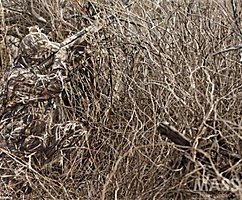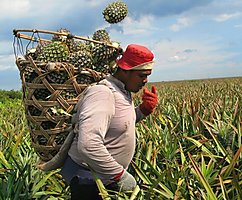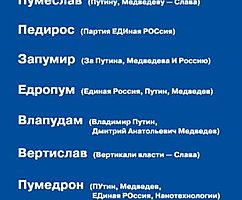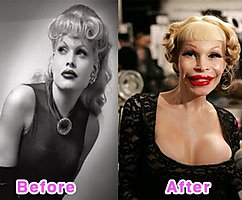8 product which vegetarians can not do
 Bashny.Net
Bashny.Net
There are thousands of reasons to stop eating meat – the desire to have a healthy heart to rescue animals. But keep in mind that simply removing meat from the diet, you reduce the flow in your body with six essential elements: protein, iron, calcium, zinc, vitamin B12 and vitamin D. to help you fill these gaps, we turned to expert Cynthia Sass, the Rapporteur of the American dietetic Association, a vegan with the experience. Today we will discuss 8 wonderful products, each of which are rich in these nutrients.

Tofu
Use: smooth tofu is a terrific source of protein, zinc, iron and even omega-3 fatty acids, which reduce cholesterol. Just half a Cup of tofu a day will provide 100 mg of calcium. In addition, the same half a Cup will provide 350 mg (approximately 1/3 of the daily requirement) of vitamin D, which helps your body better absorb calcium – the perfect combination for the health of your bones. A note on soy milk, which also contains calcium and vitamin D.
Tip: tofu can easily substitute for meat, poultry or fish in any recipe. Firm tofu would be good for that even better because it keeps the form and it can be baked on the grill.
Lentils
Use: lentils, like beans, is the representative of the legume family and a great source of protein and soluble fiber. But lentils have an advantage over beans: it contains almost 2 times more iron. Also it has more B vitamins and folate (folic acid) – these elements may be especially important for women during pregnancy to avoid congenital malformations of the fetus. For beginner vegetarians lentils are the most suitable option, because it (unlike other legumes) are less likely to cause bloating and flatulence.
Tip: suitable for beginners lentil soup. Add the lentils to a vegetable stew, chili and casseroles. Mix it with red onions and add some vinegar. Add in the lentils curry or cook together with carrots. Experiment with different variations – red lentils cooks very quickly and just as quickly transformed into a vibrant puree.
Beans
Use: Cup of beans a day will provide 1/3 of the daily requirement for iron and protein and nearly a half – fiber. Moreover, soluble fiber contained in beans, are even capable to lower cholesterol. One Cup also contains a good serving of sodium, zinc, b vitamins and some calcium. If you use canned beans, before use wash it well – it is often a lot of salt.
Tip: to get even more protein, combine beans with grains (rice, pasta, bread). "Beans you can eat all day," says Sass. Just mix it with vegetables and whole wheat pasta, make soup, add some beans to the salad.
Nuts
Use: nuts are a great source of easily digestible protein. In addition, walnuts, peanuts, almonds, cashews, pecans, macadamia and Brazil nuts are rich in zinc, vitamin E and omega-3 acids. Some – for example, almonds even contain a decent dose of calcium (about 175 mg per half Cup). One more good news: "Recent studies have shown that even though nuts are high in calories, they do not lead to weight gain," says Sass. Nuts can even help to reduce it because they fill you up quickly and you don't want to overeat at your next meal. Other experts believe that the process of cracking the nuts is in itself burns calories.
Tip: different nuts will provide different substances. So, half a Cup of almonds contains 4 times more fiber than the same amount of cashews. Cashews, however, contain 2 times more iron and zinc than other nuts. Pecans and walnuts are the leaders in content of magnesium, sodium, zinc and calcium. Feel free to add them to salads, keep a bag of nuts in your bag or on your desktop. Decorate with whole nuts, soups, use as a filling for muffins and walnut crumbs add to batter for cakes.
Cereals
Use: a whole grain cereal specially enriched with vitamin B12 – some even provide 100% of the daily requirement. In cereals also contain iron, calcium and many other microelements. Please note that if you don't eat eggs, you need to take B12 in Supplement form. Cereals and other whole grain products (whole grain bread, pasta, brown rice) are also rich In b vitamins, zinc, and, of course, soluble fiber, which not only lowers "bad cholesterol", and reduces the risk of colon cancer and other diseases of the gastrointestinal tract.
Tip: because different grains contain different micronutrients, they must be combined. "It would be too easy, for example, brown rice all the time. However, it is more useful to use different grains: oatmeal, bulgur, wild rice, whole rye and bread made of rye flour," says Sass. Also try spelt, Kamut – long-forgotten cereals, which are now fortunately again sold in supermarkets.
Green vegetables
Use: unlike most vegetables, greens like spinach, broccoli, Kale, chard and cabbage contain large amounts of iron – especially spinach. Green vegetables are a great source of antioxidants, they are rich in folic acid and vitamin A and they also contain calcium but in a form that is absorbed with difficulty. "The preparation of green salads with lemon juice or vinegar makes the calcium more available for absorption," says Cynthia Sass.
Tip: always combine foods rich in iron with foods high in vitamin C because it improves iron absorption by the body. For example, mix in a salad of dark leafy greens with yellow and red peppers, tomatoes, carrots, tangerines or other citrus. Or, if you prefer cooked vegetables, pour over them a sauce of olive oil with sweet peppers, garlic and onions.
Algae
Use: in addition to high iron content, seaweed – like alariya, dark-red seaweed, kelp, nori, spirulina and agar – are good sources of minerals, including magnesium, calcium, iodine, chromium, and vitamins A, C, E and group B. This is the real Superfoods!
Tip: add dark red algae in sandwiches, add them to salads and sprinkled on soups. Nori sheets use the vegetarian rolls and sushi. Dry kelp and feel free to add in pasta, rice or noodle soups.
Dried fruits
Use: dried fruit is a source of easily digestible protein and iron – especially if you combine them with nuts. In addition, dried fruits – apricots, raisins, prunes, mango, pineapple, figs, dates, cherries and cranberries – contain many other vitamins, minerals and high amounts of fiber. They have one indisputable advantage – love them all, even the children.
Tip: add dried fruit to a salad, use for filling sweet potato in chutney or mix to taste with nuts that you like. Dried fruits are a great and useful addition to puddings, pies, granola, oat bars, cookies, hot and cold cereals. published
P. S. And remember, only by changing their consumption — together we change the world! ©
Join us in Facebook , Vkontakte, Odnoklassniki
Source: vegetarian.ru/articles/8-produktov-bez-kotorykh-vegetariantsam-ne-oboytis.html

Tofu
Use: smooth tofu is a terrific source of protein, zinc, iron and even omega-3 fatty acids, which reduce cholesterol. Just half a Cup of tofu a day will provide 100 mg of calcium. In addition, the same half a Cup will provide 350 mg (approximately 1/3 of the daily requirement) of vitamin D, which helps your body better absorb calcium – the perfect combination for the health of your bones. A note on soy milk, which also contains calcium and vitamin D.
Tip: tofu can easily substitute for meat, poultry or fish in any recipe. Firm tofu would be good for that even better because it keeps the form and it can be baked on the grill.
Lentils
Use: lentils, like beans, is the representative of the legume family and a great source of protein and soluble fiber. But lentils have an advantage over beans: it contains almost 2 times more iron. Also it has more B vitamins and folate (folic acid) – these elements may be especially important for women during pregnancy to avoid congenital malformations of the fetus. For beginner vegetarians lentils are the most suitable option, because it (unlike other legumes) are less likely to cause bloating and flatulence.
Tip: suitable for beginners lentil soup. Add the lentils to a vegetable stew, chili and casseroles. Mix it with red onions and add some vinegar. Add in the lentils curry or cook together with carrots. Experiment with different variations – red lentils cooks very quickly and just as quickly transformed into a vibrant puree.
Beans
Use: Cup of beans a day will provide 1/3 of the daily requirement for iron and protein and nearly a half – fiber. Moreover, soluble fiber contained in beans, are even capable to lower cholesterol. One Cup also contains a good serving of sodium, zinc, b vitamins and some calcium. If you use canned beans, before use wash it well – it is often a lot of salt.
Tip: to get even more protein, combine beans with grains (rice, pasta, bread). "Beans you can eat all day," says Sass. Just mix it with vegetables and whole wheat pasta, make soup, add some beans to the salad.
Nuts
Use: nuts are a great source of easily digestible protein. In addition, walnuts, peanuts, almonds, cashews, pecans, macadamia and Brazil nuts are rich in zinc, vitamin E and omega-3 acids. Some – for example, almonds even contain a decent dose of calcium (about 175 mg per half Cup). One more good news: "Recent studies have shown that even though nuts are high in calories, they do not lead to weight gain," says Sass. Nuts can even help to reduce it because they fill you up quickly and you don't want to overeat at your next meal. Other experts believe that the process of cracking the nuts is in itself burns calories.
Tip: different nuts will provide different substances. So, half a Cup of almonds contains 4 times more fiber than the same amount of cashews. Cashews, however, contain 2 times more iron and zinc than other nuts. Pecans and walnuts are the leaders in content of magnesium, sodium, zinc and calcium. Feel free to add them to salads, keep a bag of nuts in your bag or on your desktop. Decorate with whole nuts, soups, use as a filling for muffins and walnut crumbs add to batter for cakes.
Cereals
Use: a whole grain cereal specially enriched with vitamin B12 – some even provide 100% of the daily requirement. In cereals also contain iron, calcium and many other microelements. Please note that if you don't eat eggs, you need to take B12 in Supplement form. Cereals and other whole grain products (whole grain bread, pasta, brown rice) are also rich In b vitamins, zinc, and, of course, soluble fiber, which not only lowers "bad cholesterol", and reduces the risk of colon cancer and other diseases of the gastrointestinal tract.
Tip: because different grains contain different micronutrients, they must be combined. "It would be too easy, for example, brown rice all the time. However, it is more useful to use different grains: oatmeal, bulgur, wild rice, whole rye and bread made of rye flour," says Sass. Also try spelt, Kamut – long-forgotten cereals, which are now fortunately again sold in supermarkets.
Green vegetables
Use: unlike most vegetables, greens like spinach, broccoli, Kale, chard and cabbage contain large amounts of iron – especially spinach. Green vegetables are a great source of antioxidants, they are rich in folic acid and vitamin A and they also contain calcium but in a form that is absorbed with difficulty. "The preparation of green salads with lemon juice or vinegar makes the calcium more available for absorption," says Cynthia Sass.
Tip: always combine foods rich in iron with foods high in vitamin C because it improves iron absorption by the body. For example, mix in a salad of dark leafy greens with yellow and red peppers, tomatoes, carrots, tangerines or other citrus. Or, if you prefer cooked vegetables, pour over them a sauce of olive oil with sweet peppers, garlic and onions.
Algae
Use: in addition to high iron content, seaweed – like alariya, dark-red seaweed, kelp, nori, spirulina and agar – are good sources of minerals, including magnesium, calcium, iodine, chromium, and vitamins A, C, E and group B. This is the real Superfoods!
Tip: add dark red algae in sandwiches, add them to salads and sprinkled on soups. Nori sheets use the vegetarian rolls and sushi. Dry kelp and feel free to add in pasta, rice or noodle soups.
Dried fruits
Use: dried fruit is a source of easily digestible protein and iron – especially if you combine them with nuts. In addition, dried fruits – apricots, raisins, prunes, mango, pineapple, figs, dates, cherries and cranberries – contain many other vitamins, minerals and high amounts of fiber. They have one indisputable advantage – love them all, even the children.
Tip: add dried fruit to a salad, use for filling sweet potato in chutney or mix to taste with nuts that you like. Dried fruits are a great and useful addition to puddings, pies, granola, oat bars, cookies, hot and cold cereals. published
P. S. And remember, only by changing their consumption — together we change the world! ©
Join us in Facebook , Vkontakte, Odnoklassniki
Source: vegetarian.ru/articles/8-produktov-bez-kotorykh-vegetariantsam-ne-oboytis.html
Tags
See also
10 popular foods that take energy and add pounds
3 vital skill that you were never taught
13 copies of the first things without which you can not imagine your life. I can not believe!
6 products, from which the hair and nails are growing by leaps and bounds.
How to organize a wedding for 30 days: tips, which can not do without!
10 unexpected products, which manufacturers secretly add sugar

















